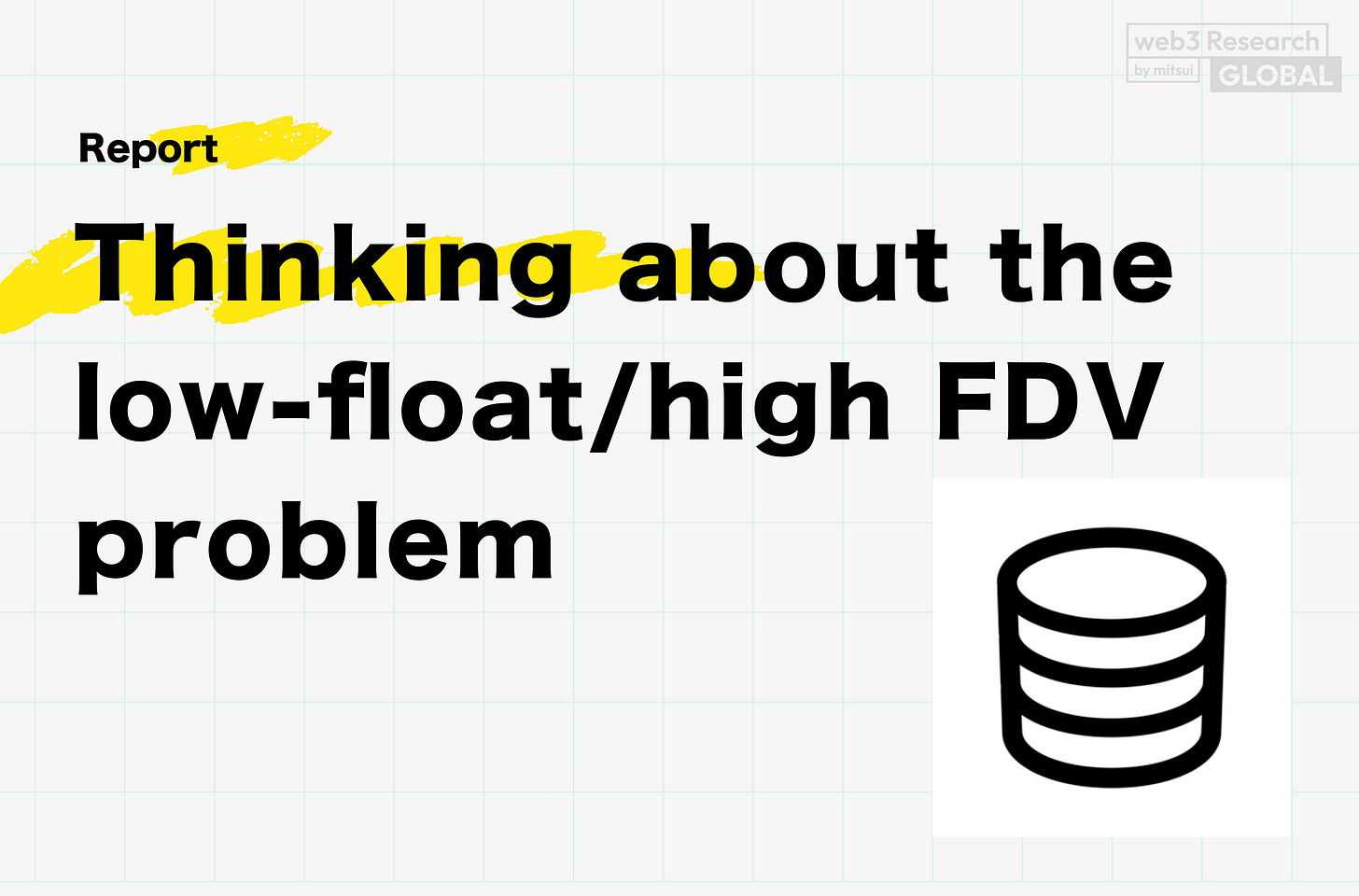Thinking about the low-float/high FDV problem
The real cause is a time-driven unlocking system!
Good morning.
Mitsui from web3 researcher.
Today we will again explain the "low-float/high FDV problem".Some of you may not have heard of the word, but don't worry, we will start with the prerequisites.Also, this is mainly an explanation of the problem rather than an article showing a solution.
🔴Low-Float, High-FDV Problem
💥The trigger and real cause of the debate
💬Blockchain is a history of problem solving
🔴Low-Float, High-FDV Problem
The first step is to organize the words.
"Low Float" refers to a situation where the amount of tokens in the market (circulating supply) is extremely low.In many projects, the actual tradable token supply tends to be low because token allocations to teams and early investors are locked up or because tokens held by investors are in the vesting period.
"Fully Diluted Valuation (FDV)is the market capitalization calculated by Token unit price × Total tokensupply is the market capitalization calculated by token unit price × total tokens issued.It can also be referred to as the "theoretical" market capitalization assuming that all tokens planned to be issued by the project are available in the market.High FDV literally means that the FDV is high.
Naturally, a high FDV is not a bad thing since the token is valued, but the problem is when it is "low float x high FDV".
Specific problems include
Discrepancy between actual demand and price
In low-float, high FDV conditions, the potential of the project as perceived by users and investors often does not mesh with the price of the tokens currently in circulation.In particular, if only flashy numbers such as "FDV on the scale of X trillion yen" are used by themselves in the early stages, the possibility that they do not match the intrinsic product value or community size increases.




